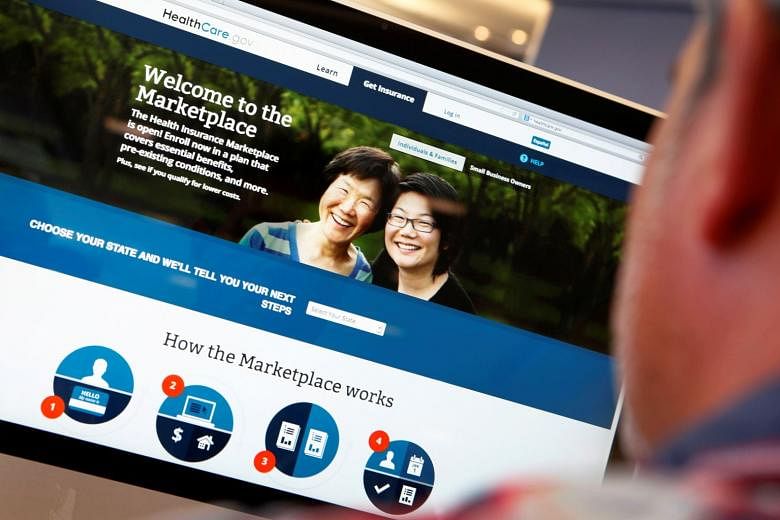SAN FRANCISCO/WASHINGTON (REUTERS) - A US judge in California on Wednesday (Oct 25) refused to block President Donald Trump's decision to end subsidy payments to health insurers under Obamacare, rejecting a request by Democratic attorneys general from 18 US states.
US District Judge Vince Chhabria in San Francisco sided with the Trump administration, saying the government does not have to make the payments while litigation over the subsidies unfolds.
Chhabria, appointed by Democratic former President Barack Obama, wrote that although the case appears to be a close call"it appears initially that the Trump administration has the stronger legal argument".
The Trump administration this month terminated the payments to the insurers, which help cover medical expenses for low-income Americans, as part of several moves to dismantle Obama's signature health-care law formally known as the Affordable Care Act.
Chhabria also said the kind of emergency order requested by the states was not necessary.
"The truth is that most state regulators have devised responses that give millions of lower-income people better health coverage options than they would otherwise have had,"Chhabria said.
"This is true in almost all the states joining this lawsuit," the judge added.
Representatives for California Attorney General Xavier Becerra, who is leading the lawsuit, did not immediately respond to a request for comment.
The subsidies were amounting to nearly US$600 million (S$800 million) a month. They were due to cost US$7 billion this year and were estimated to grow to US$10 billion for 2018, according to congressional analysts.
Democratic attorneys general from 18 states and the District of Columbia sued the federal government and asked for an immediate order halting Trump's move while the case is being litigated. They argued that terminating the payments harmed customers by raising insurance rates.
While Democrats accused Trump of sabotaging Obamacare, the president argued that the subsidies enriched insurance companies.
With the beginning of enrollment for 2018 insurance policies on Obamacare exchanges set for Nov 1, Chhabria suggested that the states focus on communicating the message that they have devised a response to the subsidy cuts that prevents harm to a large number of people.
"If the states are so concerned that people will be scared away from the exchanges by the thought of higher premiums, perhaps they should stop yelling about higher premiums," Chhabria wrote.
Insurers say they do not profit from the subsidies under the Affordable Care Act, but pass them on directly to consumers to reduce deductibles, co-payments and other out-of-pocket medical expenses for low-income people.
Because insurers would raise premiums on policies in the absence of the subsidies, the government would be compelled to spend more on financial assistance to low-income Americans.
Earlier on Wednesday, the nonpartisan Congressional Budget Office found that a bipartisan Senate proposal to shore up Obamacare insurance marketplaces by reviving the subsidies would cut the US deficit by US$3.8 billion over the next decade.

